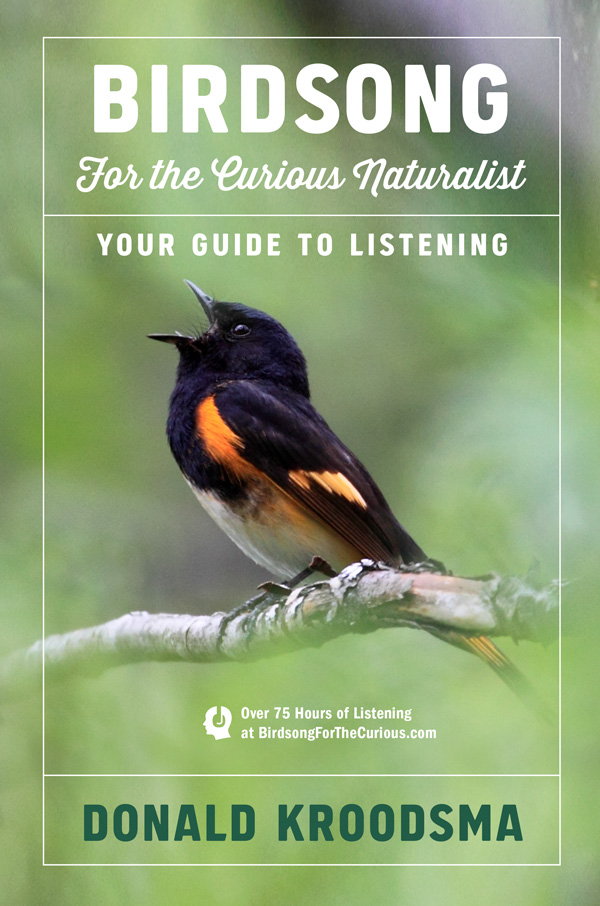Montezuma oropendola
Chapter 10: More birds! More Sounds!
Subchapter: More birds! More Sounds!—Americas
From page 169 in the book.
Oropendolas are blackbirds in the family Icteridae, distant relatives of our North American blackbirds and grackles, though by their songs you'd never know it. For half a second or so, the male Montezuma oropendola whines ever so softly on a single rising note, then for about two seconds bubbles and gurgles along, rising in pitch and intensity, to the terminal climax of a rapidly modulated quarter second note (♫711). Slow the songs down and study the sonagrams, and you can then hear and see that he is using his two voice boxes (♫712). Below 1 kHz, almost certainly with his left voice box, he bounces among alternating higher and lower notes, while up above with his right voice box he accompanies in a higher register. The overall effect when heard at quarter speed is extraordinary, and now the ending climatic note sounds like a trumpeting elephant.
But there's more! He also "sings" a most unbirdlike sound, as if he were thrashing tree branches, breaking them to smithereens. What the—? How does he do that? Slow that song to quarter speed and it truly sounds like an elephant crashing through the forest, throwing large tree trunks aside with abandon. What a striking contrast between these two "songs" of the Montezuma oropendola! February 16, 2011. Mundo Perdido ("Lost World"), Tikal National Park, Guatemala.
♫711. Standing beside one of the pyramids in the Lost World at Tikal National Park, I gaze up in wonder, the songs of this blackbird booming into my ears (amplified into my headphones, of course). In this selection, he sings the pure-toned song repeatedly, but every once in a while offers the branch-thrashing song (e.g., 3:56, 4:10). After 16 minutes, I need to get closer to him, so I climb the pyramid, recording just a few more sounds from up there, at eye level with him, before he flies off. (19:47)
♫712. At quarter speed, the four songs from 17:07 to 17:28 in the above recording. Slowed down, you hear first the elephant crashing through the forest, then the two voices in the pure-toned song bouncing along to the terminal elephant bugle. (0:52)
